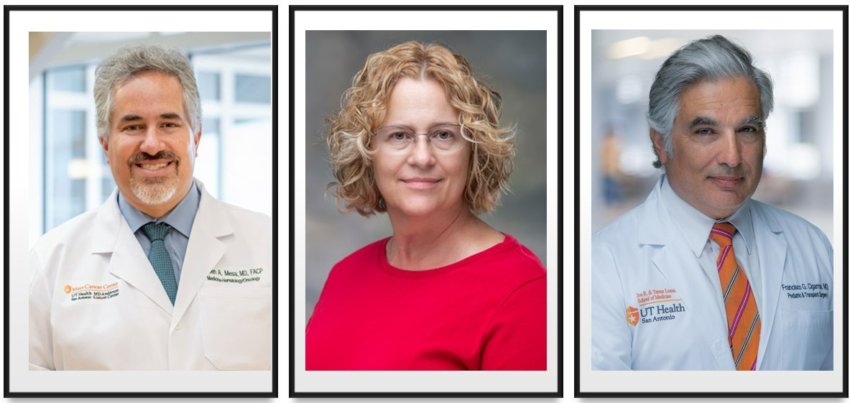“Liver cancer is disproportionately the most common type of cancer in San Antonio and South Texas when compared to the rest of the country. Discovering why is our focus,” says Ruben Mesa, MD, FACP, executive director of the Mays Cancer Center, home to UT Health San Antonio MD Anderson Cancer Center. Dr. Mesa is also the Mays Family Foundation Distinguished University Presidential Chair, whose research centers on developing new therapies for myeloproliferative neoplasms.
Dr. Mesa and his team know that several factors can lead to liver cancer. In South Texas, particularly, the biggest driver is fatty liver, which also is very common throughout the country. “With metabolic syndrome, there is fat in the liver. It can irritate the liver and that can lead to liver cancer,” he said.
Mays Cancer Center researchers, including Christi Walter, PhD, professor and chair of the Department of Cell Systems and Anatomy, and Francisco Cigarroa, MD, professor of medicine and director of the University Health Transplant Institute, are building a formidable team to help make an impact on liver cancer through practice, education and research.
Dr. Cigarroa, a nationally renowned transplant surgeon, holds the Carlos and Malú Alvarez Distinguished University Chair and Ashbel Smith professorship in surgery. Dr. Cigarroa was a former president of UT Health San Antonio and chancellor of The University of Texas System before returning to full-time medical practice. Both he and Dr. Walter are faculty members in the Joe R. and Teresa Lozano Long School of Medicine.
Everything it takes
Many clinical trials are going on at the Mays Cancer Center, the only National Cancer Institute-designated Cancer Center in Central and South Texas. Among them are clinical trials to screen earlier for liver cancer, trials to prevent liver cancer and trials especially for individuals at high risk of developing liver cancer. There are also clinical trials for treating those with liver cancer and trials to improve the quality of life for liver cancer survivors. “And of course, we have a world-class liver transplant program, which can be a curative therapy for some individuals with liver cancer,” Mesa said.
The inaugural San Antonio Liver Cancer Symposium that took place virtually in early October was hosted by the Mays Cancer Center. The two-day event brought together more than 1,000 attendees from more than 40 countries. The experts discussed the burden of hepatocellular carcinoma, which is especially prevalent in South Texas; the epidemiology of liver cancer; as well as pre-clinical, translational and clinical advances in treating this disease, including survivorship and liver cancer in pediatric patients.
The Mays Cancer Center, the Department of Cell Systems and Anatomy and the transplant institute are recruiting a senior scientific leader to join its multidisciplinary team. They are seeking someone whose work focuses on the biological processes of fatty liver disease and the development of liver cancer to lead research on cancer prevention, screening tools and treatment studies.
Click here to learn more about the Mays Cancer Center and its priority to serve the cancer care needs of our South Texas community.


